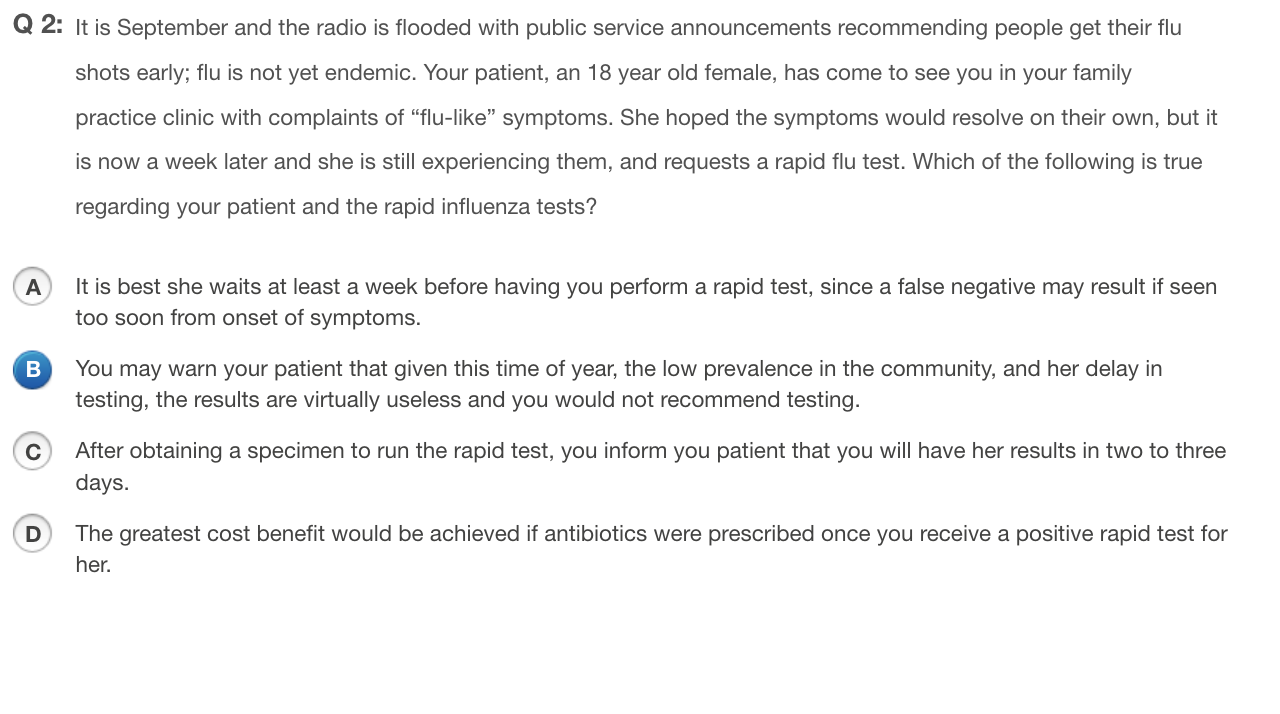It is September and the radio is flooded with public service announcements recommending people get their flu shots early; flu is not yet endemic. Your patient, an 18 year old femal... It is September and the radio is flooded with public service announcements recommending people get their flu shots early; flu is not yet endemic. Your patient, an 18 year old female, has come to see you in your family practice clinic with complaints of flu-like symptoms. She hoped the symptoms would resolve on their own, but it is now a week later and she is still experiencing them, and requests a rapid flu test. Which of the following is true regarding your patient and the rapid influenza tests?

Understand the Problem
The question is asking about the appropriate medical advice regarding a patient with flu-like symptoms seeking a rapid influenza test before the flu season is endemic. The objective is to identify the best course of action concerning the timing and relevance of testing given the patient's situation.
Answer
B: Testing results may be useless due to low flu prevalence and delayed testing.
The correct answer is B: You may warn your patient that given this time of year, the low prevalence in the community, and her delay in testing, the results are virtually useless and you would not recommend testing.
Answer for screen readers
The correct answer is B: You may warn your patient that given this time of year, the low prevalence in the community, and her delay in testing, the results are virtually useless and you would not recommend testing.
More Information
During the early flu season, the prevalence is low, reducing the predictive value of rapid tests. Testing can lead to misleading results, especially after a delay in symptom onset.
Tips
A common mistake is overestimating the utility of rapid tests early in the season or after symptoms have persisted.
AI-generated content may contain errors. Please verify critical information